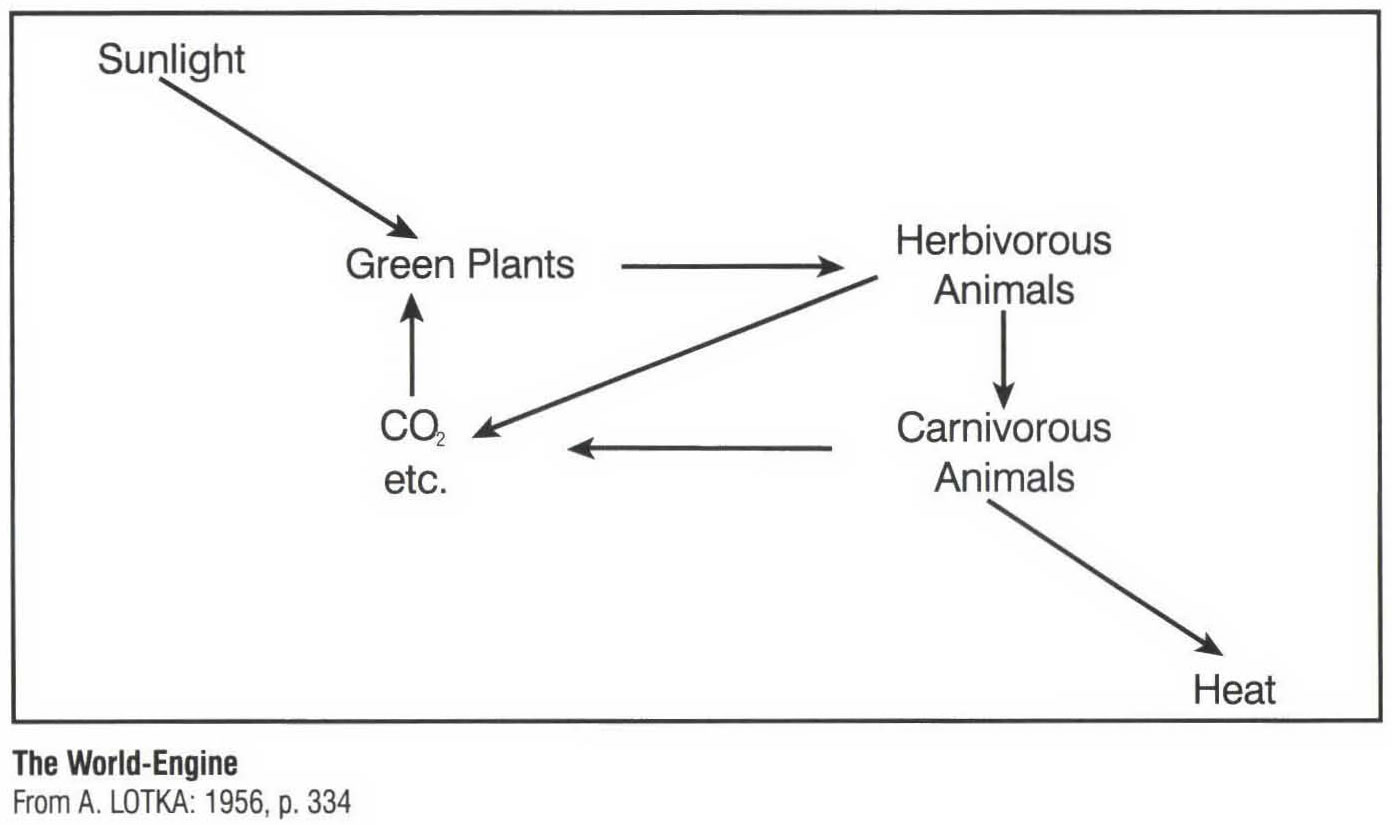WORLD ENGINE 1)2)
← Back
This striking concept, a forerunner of LOVELOCK's GAIA, was formulated as early as 1924 by A. LOTKA, who thus introduced the first ecological model of the planet as a globally connected system, as shown in figure (1956, p. 331).
LOTKA understood moreover that the world engine functions cyclically, and is a gigantic dissipator of energy. He added: "… in detail the engine is infinitely complex, and the main cycle contains within itself a maze of subsidiary cycles. And, since the parts of the engine are all interrelated, it may happen that the output of the great wheel is limited, or at least hampered, by the performance of one or more of the wheels within the wheel… If the working substance, or any ingredient of the working substance of any of the subsidiary transformers, reaches its limits, a limit may at the same time be set for the performance of the great transformer as a whole. Conversely, if anyone of the subsidiary transformers develops a new activity, either by acquiring new resources of working substance, or by accelerating its rate of revolution, the output of the entire system may be reflexly stimulated" (Ibid).
This is LOTKA's Principle of selection for maximum power output, which refers to ecosystems, i.e. complex networks of complex systems.
LOTKA perceived clearly that the world engine undergoes a permanent evolution which improves it, through an increase of complexity.
The correlations with Prigoginian thermodynamics of systems far away from equilibrium and with BENARD's dissipative structuration are obvious.

Categories
- 1) General information
- 2) Methodology or model
- 3) Epistemology, ontology and semantics
- 4) Human sciences
- 5) Discipline oriented
Publisher
Bertalanffy Center for the Study of Systems Science(2020).
To cite this page, please use the following information:
Bertalanffy Center for the Study of Systems Science (2020). Title of the entry. In Charles François (Ed.), International Encyclopedia of Systems and Cybernetics (2). Retrieved from www.systemspedia.org/[full/url]
We thank the following partners for making the open access of this volume possible:

